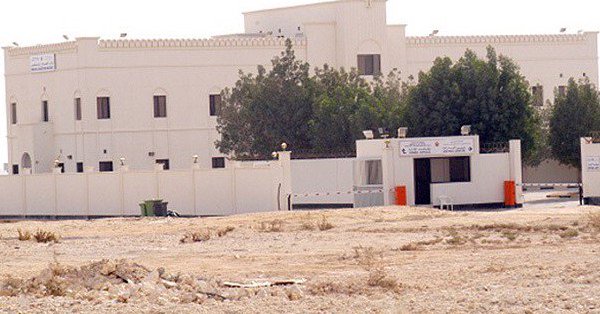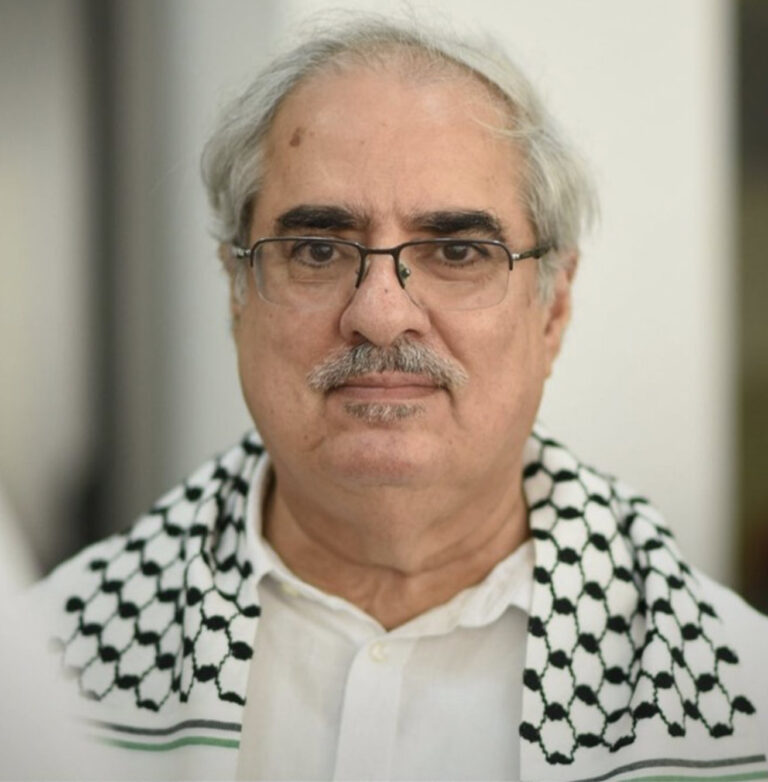27 October 2017 – We the undersigned organizations condemn Bahrain’s continuing degradation and abuse of a group of high-profile human rights defenders and political leaders. The group, known as the rumūz(“leading figures”) in Bahrain, is segregated in Building No. 7 of Jau Prison and consists of: AbdulWahab Husain, Mohamed Ali Ismaeel, Mohamed Hasan Jawad, AbdulHadi al-Khawaja, Sheikh Merza al-Mahroos, AbdulHadi al-Mukhodher, Sheikh AbdulJalil al-Muqdad, Mohamed Habib al-Muqdad, Hasan Mushaima, Sheikh Ali Salman, Sheikh Saeed al-Noori, and AbdulJalil al-Singace. All are prominent either as human rights defenders or as leaders of the political opposition in Bahrain. It is noteworthy that until the escalated crackdown of 2016–17, all the political leaders operated openly as members of officially registered political groups. None have ever been credibly accused of anything beyond what would be regarded as regular activism and organizing in established democracies. Sheikh Ali Salman, the most recent addition to the group (detained December 2014, transferred to Jau after conviction in May 2015), was the Secretary-General of Al-Wefaq, which was Bahrain’s largest political party until the government dissolved it in 2016. Others, such as AbdulHadi al-Khawaja, have never taken any political stance and are simply proponents of human rights in Bahrain.
On 16 October 2017 the members of the group were all subjected to strip searches. None of them has any history of violence. All have been kept in isolation from the general prison population since the time they arrived at Jau. They are not allowed exercise time in the prison yard and are rarely even allowed out of their cells. Most have not received visits from their families in months, and all such visits are in any case closely monitored by prison guards. In short, the prison administration maintains absolutely physical control over every aspect of their lives and movement. There is no cogent reason any of them might have been suspected of having contraband, and no conceivable security pretext for such an invasive search. The purpose was plainly to degrade and humiliate. Just two days later, on 18 October, Sheikh Mirza al-Mahroos was forced to undergo another strip search in order to be allowed to receive a visit from his family.
At the same time that the strip searches were conducted on 16 October, the prison administration confiscated virtually every personal item belonging to the group, including all books and writing materials. Some of the books taken included religious texts of great personal value to the prisoners and the scholarly materials of Dr. al-Singace, who has been pursuing a philological study of the roots of the modern Bahraini dialect of Arabic while in prison. Though prison authorities have arbitrarily confiscated books and writing materials before, this marks the first time that all religious texts have been taken. Hassan Mushaima also had his phone credit card, needed for calls out from the prison, confiscated. All the prisoners were denied phone calls for the next two days. This follows on an incident in the summer when, during the weeklong period of 13–19 June, the prison administration cut off all access to phones among the group.
Most of the group in Building No. 7 are senior citizens and take medication for common ailments of age like diabetes and cardiovascular problems. Hassan Mushaima is a survivor of lymphoma and is under doctors’ orders to receive regular screenings verifying that the cancer has not returned. AbdulWahab Husain suffers from sickle-cell anemia and polyradiculoneuropathy (a disorder of the peripheral nervous system). Dr. al-Singace, a survivor of polio who also has sickle-cell anemia, walks with crutches. Abdulhadi al-Khawaja has since March 2017 been suffering loss of vision in his right eye, which at worst might indicate emboli, with a possibility of cerebral stroke.
Yet the Jau prison administration has imposed unreasonable and humiliating conditions on access to medical care. Since spring of this year, prison authorities have made the group’s medical care conditional on their submission to a series of demands. None of the group are allowed to attend medical appointments unless they submit to wearing the prison uniform – which, as prisoners of conscience, they refuse – and to shackling at the arms and legs. Strip searches have also been demanded at times. Transportation to medical appointments, which used to be by bus or van (and still is for the remainder of the prison population), is now only made available in the back of a windowless van with no ventilation or lighting. Distribution of medication has been sporadic since September, as the Jau administration has sought to make the group go to the prison clinic in shackles to receive their prescriptions instead of receiving refills in their cells. As a result, prisoners have been driven to ration and share medication dosages among those with the same conditions.
In light of these prisoners’ physical conditions and the absence of any history of violence, the prison administration’s demands are clearly uncalled-for. The imposition of shackling in particular clearly serves no reasonable security purpose in this case. The restrictions are evidently a form of punishment being imposed because the prisoners are regarded as dissidents. The group has refused to submit to the conditions imposed, and as a result their medical care has reached an impasse. Mr. al-Khawaja has yet to be examined and diagnosed for the loss of vision. Mr. Mushaima has not been to his cancer screening appointments since September 2016. Dr. al-Singace has not been supplied with prescription rubber padding for his crutches since he entered the prison.
Moreover, the prison commissary has been closed to the prisoners in Building No. 7. The standard allotment for a Bahraini prisoner consists of two uniforms, one tray for food, one cup, one mattress, and one pillow. Nothing else – not even underwear or winter clothing – is provided. Prisoners therefore have to buy all personal necessities (including soap, toilet paper, shaving cream, and additional layers of clothing) at the commissary. Commissary prices, incidentally, are vastly inflated, to the extent that supplying a detained family member with money for his necessities in prison can be a significant economic burden for poorer families. Depriving the group in Building No. 7 of access to the commissary is thus depriving them of access to basic hygiene, which constitutes a severe affront to their personal dignity and a further risk to their health.
All these measures are contrary to the United Nations Standard Minimum Rules for the Treatment of Prisoners. More colloquially known as the Nelson Mandela Rules, these guidelines for the treatment of prisoners are intended to be universal and were adopted in their current form by consensus of the UN General Assembly in 2015. (The Rules have been extant in several versions since 1955.) Rule 1 of this instrument states, “All prisoners shall be treated with the respect due to their inherent dignity … as human beings,” and “No prisoner shall be subjected to … degrading treatment.” Rule 2 forbids discrimination against prisoners on the basis of “political or other opinion,” while Rule 3 indicates that punishment of prisoners beyond that inherent in incarceration itself is a fundamentally illegitimate objective. Imposition of further coercive measures in prison is permissible only to maintain security and discipline within the prison system, but not to “aggravate the suffering inherent in such a situation.” The more specific provisions that constitute the bulk of the Rules enter into considerable detail on proper treatment of those deprived of their liberty. Bahrain’s conduct is at odds with these Rules on many points, including personal hygiene (Rule 18.1: “Prisoners … shall be provided … with such toilet articles as are necessary for health and cleanliness”) and physical restraint (“instruments of restraint shall only be used … [a]s a precaution against escape” or “to prevent a prisoner from injuring himself … or others”). This is aside from the fact that, as the rumūz are comprised wholly of prisoners of conscience, their detention is in itself unlawful. UN human rights offices have been raising concerns about this group of prisoners since 2011, and the UN Working Group on Arbitrary Detention has issued a formal opinion finding that “The deprivation of [the] liberty of Sheikh Ali al-Salman, being in contravention of” multiple provisions of international law, “is arbitrary,” i.e., unlawful.
We call on Bahraini authorities to fully respect the Standard Minimum Rules, which they implicitly agreed to when the Rules were adopted without objection by the General Assembly and which represent the consensus view of the international community on the baseline for humane treatment of prisoners. The Rules’ core stricture on unnecessarily degrading measures reflects a basic rule under binding treaty law to which Bahrain is party (e.g. the International Covenant on Civil and Political Rights, Articles 7 and 10.1, the Convention Against Torture and Other Cruel, Inhuman or Degrading Treatment or Punishment, Article 16.1). The Jau Prison administration’s actions against these prisoners cannot be justified on security grounds and are transparently intended as measures of punishment and humiliation. Given the high profile of the group of prisoners held in Building No. 7, it is virtually certain that these measures have the approval of the highest ranks of government and represent state policy. As such, the ongoing situation in Building No. 7 of Jau Prison is not consistent with Bahrain’s international legal obligations. We call on Bahraini authorities to bring their actions into compliance with these obligations, and urge the international community to apply diplomatic pressure until they do so. Finally, we reiterate our longstanding call that the Government of Bahrain release all prisoners of conscience, including the high profile prisoners of Building No. 7, and undertake confidence building measure with a view towards restoring national dialogue and reconciliation.
Signed,
Americans for Democracy & Human Rights Democracy (ADHRB)
Bahrain Institute for Rights and Democracy (BIRD)
European Center for Democracy & Human Rights (ECDHR)




